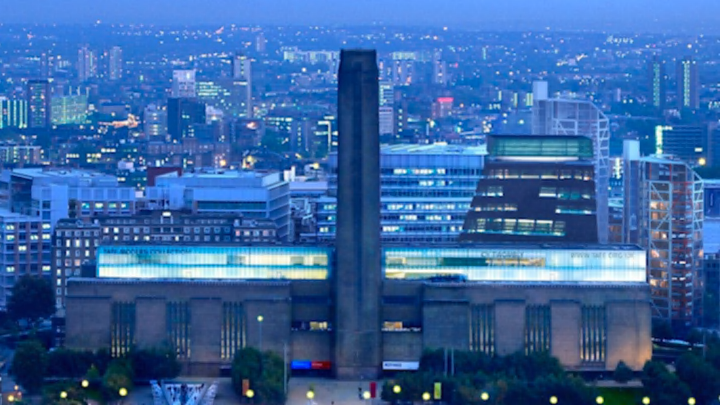As part of the announcement this week that new Tate Modern will open to the public on June 17, 2016, the renowned modern art gallery also revealed that schoolchildren in the UK will be among the first individuals to see the new space one day before it's unveiled to the rest of the world. The special preview is the latest example of Tate Modern’s ongoing effort to engage kids with art, but not everyone shares the gallery’s vision.
Back in January of 2014, the art world was divided over the question as to whether art galleries and museums were truly family-friendly places after a child (allegedly encouraged by her parents) was photographed climbing onto a $10 million sculpture by artist Donald Judd at Tate Modern. (A Brooklyn gallery owner snapped a photo of the incident, which promptly went viral.)
The gallery's response to the event was swift and clear: In a statement, a Tate Modern spokesperson claimed that the situation was “dealt with immediately” and that “Tate welcomes families to all of its galleries.”
Not everyone agreed with that stance: UK-based sociologist Tiffany Jenkins argued that "the way cultural institutions are increasingly organized to cater [to] kids is changing them for the worse for adults and for kids ... Instead of introducing young people to the material and artistic achievements of past human civilizations, too many cultural institutions direct attention away from what is unique about them, often running activities only indirectly related to what is on show."
In New York City, The Frick Collection does not allow young children into its museum. According to their policy (which dates back to 1935), admitting children under the age of 10 would “necessitate erecting numerous and varied physical barriers to protect the works of art [which would] change fundamentally the experience of viewing the Collection.”
Yet numerous studies (here, here, and here, for starters) have shown that exposing kids to art at a young age can have a powerfully positive effect, and Tate Modern's directors clearly agree.
“Opening a building like this is not just about the here and now, it is primarily about the future," Nicholas Serota, Tate Modern's director, told mental_floss. "Tate should make a difference to people's lives by offering the experience of art to all. It is vitally important that every child in the UK should be able to see the art of the past and the art of our own time, wherever they live. That is why we have decided that the first members of the public to see the new gallery, even before the opening festivities, will be schoolchildren from across the UK ... we must sustain and develop our museums, stimulating and nurturing aspiration for future generations."
